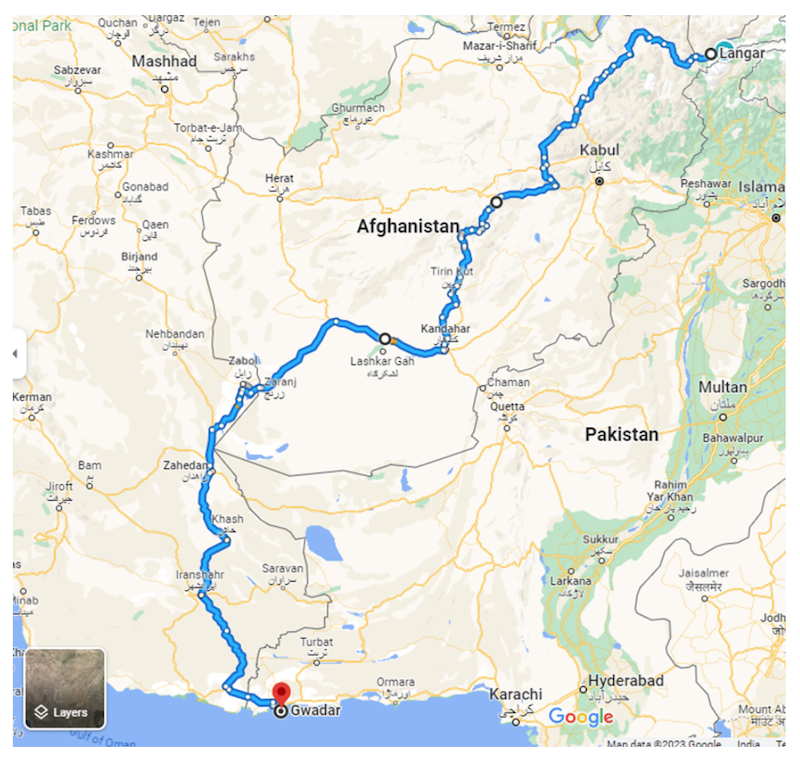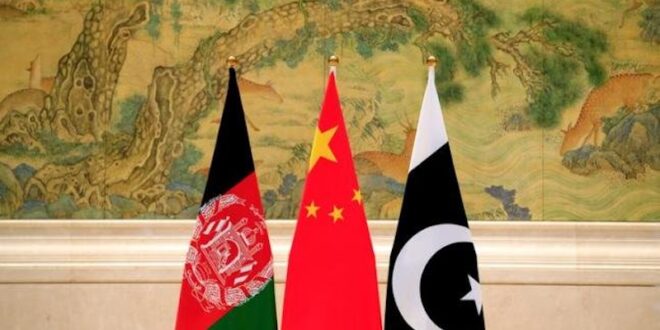Right from the inception of Pakistan, it has had the insatiable desire to keep Afghanistan under its tacit control; anything and everything for Afghanistan should go through Pakistan. Pakistan, from the 1980s, increasingly meddled in the affairs of Afghanistan. From training and nurturing the Taliban in the early 1990s to supporting the US in the Global War on Terror (GWOT) in the 2000s, training and abetting the Taliban regime 2.0 after its ascendancy in Kabul. Pakistan asserted its control over Afghanistan politically.
Regarding trade and economic activities and initiatives, Afghanistan is forced to consider Pakistan a landlocked country. Pakistan continues to exploit the Afghans for their sea connectivity, leaving Afghans no choice but to keep Pakistanis in good humour for their international trade and access to sea routes. In addition, Iran becoming a Shia country in 1979 has significantly reduced the ability to conduct trade via Iran for the Taliban government. Pakistan, on the other hand, nurtured the Taliban from its inception. Pakistan milked successive US governments in the name of GWOT to assert its linkage with the Taliban as part of negotiations during the entire duration of the GWOT, and they also played a constructive role in establishing an amenable government for the West in Afghanistan. In return, it naturally aided their theory of the strategic depth against any Indian aggression.
The Pakistani government supports the incumbent Taliban regime despite TTP being an irritant. The aim of advancing the relations is more of a compulsion than a strategy. On the other hand, Pakistan has been delicately balancing its relationships with the US and China regarding Afghanistan. Knowing Pakistan elites’ inability to implement CPEC fully, China wants to access the warm water port near the Arabian Peninsula. Pakistan wants Chinese funds for its economy and infrastructure development as part of the corridor, and given the enmity with India, the iron-clad friendship persists, and so does the CPEC.
During the Cold War, the US needed Pakistan for its geo-strategic location and for being a frontline state against the erstwhile USSR during the Afghan Jihad; India’s Soviet tilt further fueled its worries and later post 9/11. Under General Musharraf, Pakistan needed American funds and military hardware to build its conventional capacity against India, respectively. Pakistan has been running with a hare and hunting with the hound, keeping both the superpowers happy and getting their way around them.
However, cracks have started to emerge in this whole equation causing significant discomfort to the US, Taliban, and China. Given the economic distress that Islamabad finds itself in, Pakistan has no option but to get buckled under US pressure. A recently published intercept story sheds light on various issues, especially the weapon supply to Ukraine, which has not gone well with China. Likewise, Kabul blamed Islamabad for violating trade and transit agreements by closing the Torkham border crossing and not clearing Afghan imports and exports at Karachi port. Both have also been blaming each other on the issue of TTP and other terror-related activities. This further put impetus on the need for Taliban-China relations. The Taliban and China are trying to escape this compulsory courtship with Pakistan to get their interests going.
Despite the repeated efforts of Pakistan to persuade the Taliban, the Taliban does not recognize the Durand line. Taliban is trying to show the world that it is better off by making indigenous efforts to rebuild its war-torn country and that it can progress by innovating the world’s longest canal in a desert. It is opening up its trade and mines for the world to come and invest and develop. Nine countries have shown interest in Afghanistan, including Turkey, the UK, and China. The spread of its mineral wealth is given in the table below.

China earlier had to depend on Pakistan for its interactions with the Afghan government. Now, with the tables turned that there is a relatively stable government in Afghanistan and an unstable government in Pakistan, China finds it better to deal with Afghanistan directly. China needs to safeguard its interests as it knows Pakistan can buckle anytime under US and IMF pressure. With CPEC leading to nowhere, China prioritizes reducing dependency on CPEC. There exists an insecurity within some quarters in China that Pakistan may slow down CPEC under US pressure, putting a cog to its flagship BRI initiative.
Opening the Wakhan corridor for trade will kill two birds with one stone for China.
a) It gives the shortest trade route from China to Afghanistan, reducing distances, duties, and taxes, and the fastest means to reach Mainland China
b) The Wakhan corridor can access Chahbahar via Kandahar and Zahedan. In the case of Gwadar, it can enter Pakistan from the Rimdan -Tamp Kuh Border crossing, bypassing the entire disturbed area of Gilgit Baltistan and Balochistan in Pakistan.
c) China’s dependence on the Karakoram highway would also reduce for anything going South of Hasan Abdal / Torkham

The new route would also reduce Afghanistan’s dependency on Torkham. This would, however, reduce Pakistan’s revenue in terms of duties levies and taxes as a sizable amount of present cargo would bypass a significant part of Pakistan. The import-export balance in Chinese favor would hit the Pakistan Economy quite hard.
The US time and again has been able to force its policies on the Pakistan-Iran pipeline, bases for their drones, good terror and bad terror and so on. Understanding the ability of the US to influence Pakistan and its resultant negative effect on China’s economy and its BRI expansion plans, China is constantly seeking alternate options. The opening of Wakhan gives both China and Afghanistan alternate options, reducing Pakistan’s visible and hidden influence, especially in the present scenario where Pakistan has strained relations with China due to Ukraine’s support and with the IEA on TTP.
 Eurasia Press & News
Eurasia Press & News




